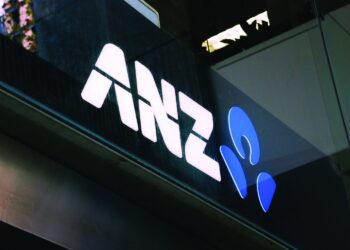Australia’s exchange-traded fund (ETF) market has witnessed unprecedented growth, with year-to-date net flows hitting a record $10.8 billion, according to Global X.
Global X anticipates that if the current strong momentum persists, the Australian ETF market could surpass the calendar year net flow record of $23.6 billion set in 2021 by year-end.
Amid Australia’s burgeoning market, which now exceeds $200 billion in assets under management as of June, the lion’s share of flows continue to favour low-cost broadly diversified ETFs.
Namely, the Vanguard Australian Shares Index ETF (VAS) and Betashares Australia 200 ETF (A200) attracted $2 billion and $1.7 billion in net flows, respectively, over the last 12 months.
On the flip side, Global X emphasised that four out of the five least popular products over the year were active ETFs, indicating that Australian investors maintain a preference for index-based strategies.
The Magellan Global Fund – Open Class Units (Managed Fund), for instance, was revealed as the least popular ETF by net flows, losing $1.9 billion over the last 12 months.
In conversation with InvestorDaily, Marc Jocum, product and investment strategist at Global X, said these results underscore the “high cost versus low cost” dilemma in ETF strategy selection, where higher costs historically align with managed funds.
“It’s something that we’ve seen as a theme for a while. Because even though in Australia, about a fifth of the assets are with active ETFs, the flows aren’t in the same proportion,” Jocum said.
Specifically, Jocum pointed out that over 75 per cent of the flows are directed towards products with management fees under 0.25 per cent per year, with an overwhelming 97 per cent flowing into products charging 0.5 per cent or less.
“That’s what Aussies love. Aussies love a deal, love the idea of controlling the fees,” Jocum said.
“I think Australian investors still have this perception, rightly so, in our opinion, that a lot of the simple arithmetic of the share market and some of the statistics behind it is that active managers still are struggling to outperform their benchmark, and to outperform a broader ETF, like a low-cost vanilla ETF.
“So, that’s where you’re seeing a lot more money going into just your very broad based, low-cost products. Because, naturally, that’s where a lot of people are thinking, ‘If I can get exposure to a certain asset class, why not control one of the areas that investors can control’, which is the fees they pay.”
Jocum also highlighted the emergence of strategies like smart beta investing, which offer exposure to active themes at a reduced cost.
“Aussies have this opportunity, they want to get access to reasonable investments and pay reasonable prices.”
Looking ahead, he noted that an interesting trend to watch is active managers introducing low-cost ETFs to the market.
In May, Macquarie Asset Management launched two new systematic active ETFs with competitive management fees, along with a performance fee which only applies when the performance of the active ETF exceeds the index.
The Macquarie Core Australian Equity Active ETF (ASX: MQAE), for example, boasts a management fee of 0.03 per cent per annum, coupled with a performance fee for its cumulative outperformance of the benchmark.
“[Macquarie] have come in with a low-cost active ETF which is sure to disrupt the industry,” Jocum continued, although he admitted that this suite of funds from Macquarie still haven’t attracted as many flows as some of the bigger market players that offer vanilla products.
“So, I don’t see the pendulum switching back towards active in the near future,” he said.
“There is a place for active in people’s portfolios, particularly for those who want exposure to certain asset classes. But I think that, overall, more money will go towards the index-based products, and slowly but surely, they’re going to be eating at the share of those actively managed funds products.”







